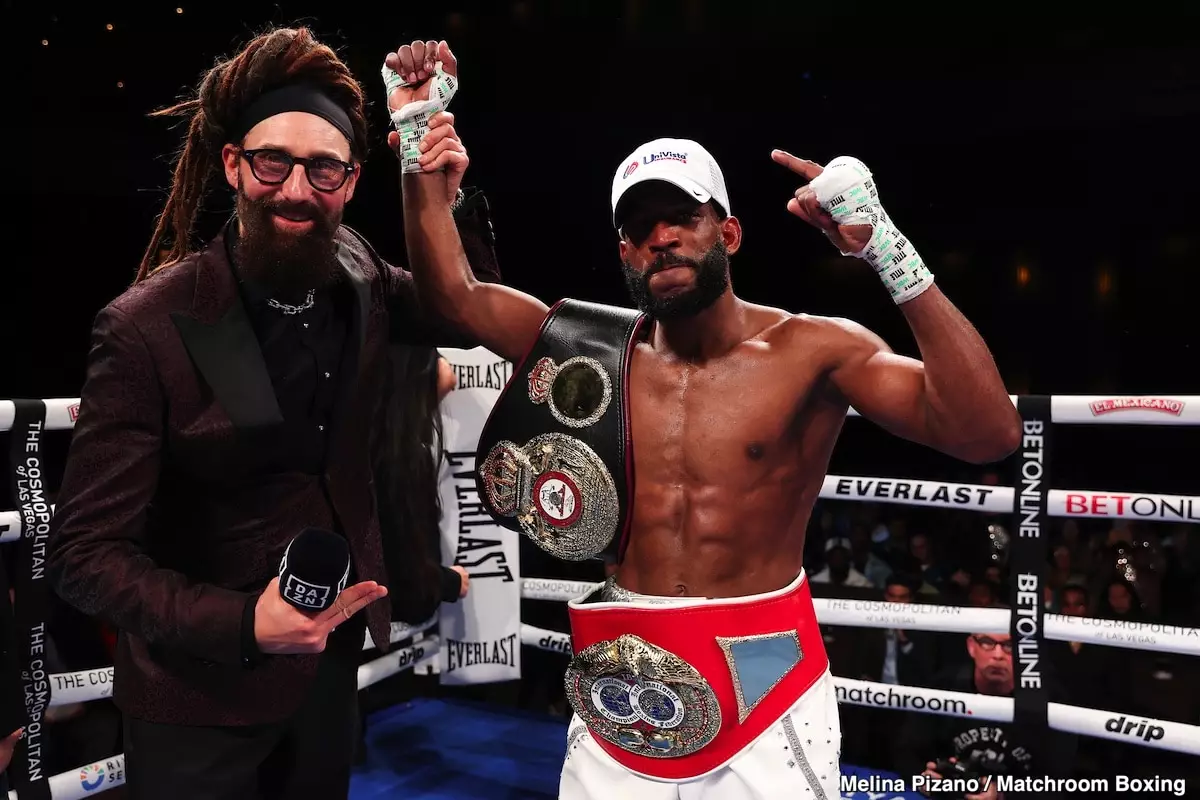In the world of boxing, the persona a fighter adopts can significantly impact their career trajectory. Andy Cruz, the 2020 Olympic gold medalist, has skillfully transitioned into the role of a provocateur. Rather than waiting for opportunities to materialize, Cruz has stepped into the limelight, unapologetically calling out fellow contenders like Keyshawn Davis and Abdulla Mason. His assertive approach contrasts sharply with the often measured and subdued demeanor expected from fighters boasting impressive resumes. Cruz’s boldness may attract criticisms of arrogance, but it is precisely this audacity that has the potential to reshape his presence in the sport.
Feuds and Rivalries: A Catalyst for Growth
Cruz’s rivalry with Keyshawn Davis is particularly noteworthy, with Cruz boasting a flawless amateur record against him, prevailing in all four encounters. By openly labeling Davis as “scared,” Cruz is not merely seeking to stoke the flames of rivalry; he is challenging the legitimacy of Davis’s confidence. If platforms like social media amplify these exchanges, they can transform into profitable fights that engage fans and elevate the sport’s financial dynamics. For Cruz, the battle is not just in the ring; it’s a strategic game of psychology, pushing his opponents into a corner where they either confront him or risk facing the backlash of perceived cowardice.
The Underdog’s Dilemma
Contrastingly, both Davis and Mason find themselves in a precarious position. With Cruz’s significant track record against Davis, the latter may feel an immense pressure to factor in legacy concerns versus risk of a detrimental loss. The hesitation to face Cruz is a manifestation of a defensive strategy rather than a lack of skill. Mason, on the other hand, remains nurtured by the protective hands of promoter Top Rank, who are trying to build him into a future champion meticulously. Although Mason is undefeated, his inexperience and gaps in technical skills raise alarm bells when considering a fight against someone like Cruz. This protective matchmaking further exemplifies a broader issue in boxing—promoters often prioritize their fighters’ record over creating thrilling, competitive match-ups.
Shifting Tactics: The Weight Class Conundrum
Cruz’s current predicament is exacerbated by the dynamics within the lightweight division. Spectacular talents like Shakur Stevenson inhabit this space, and with promoter Eddie Hearn seemingly reluctant to pit his fighters against the daunting challenge that Cruz represents, the Cuban might need to rethink his path. Moving up to the light welterweight division could open doors to fresh rivalries and opportunities. The higher weight class may provide the elusive match-ups he desires, allowing him to challenge rising fighters who are perhaps less shielded by promoter agendas.
Self-Made Hero or Unchecked Bravado?
Cruz’s brazen callouts may elicit mixed reactions. On one hand, they can be seen as a necessary challenge to complacency; on the other, there lurks the risk of coming off as overconfident or even delusional. In a sport where respect and humility often draw admiration, Cruz’s unapologetic demeanor draws a fine line between bravado and unbridled arrogance. This intentional cultivation of an edgy persona, however, can resonate with fans who crave authenticity and confrontation in the ring. The sport of boxing remains in constant flux, and figures like Andy Cruz have the power to shift narratives, driving interest and conflict that fuels both their careers and the evolution of the sport itself.

